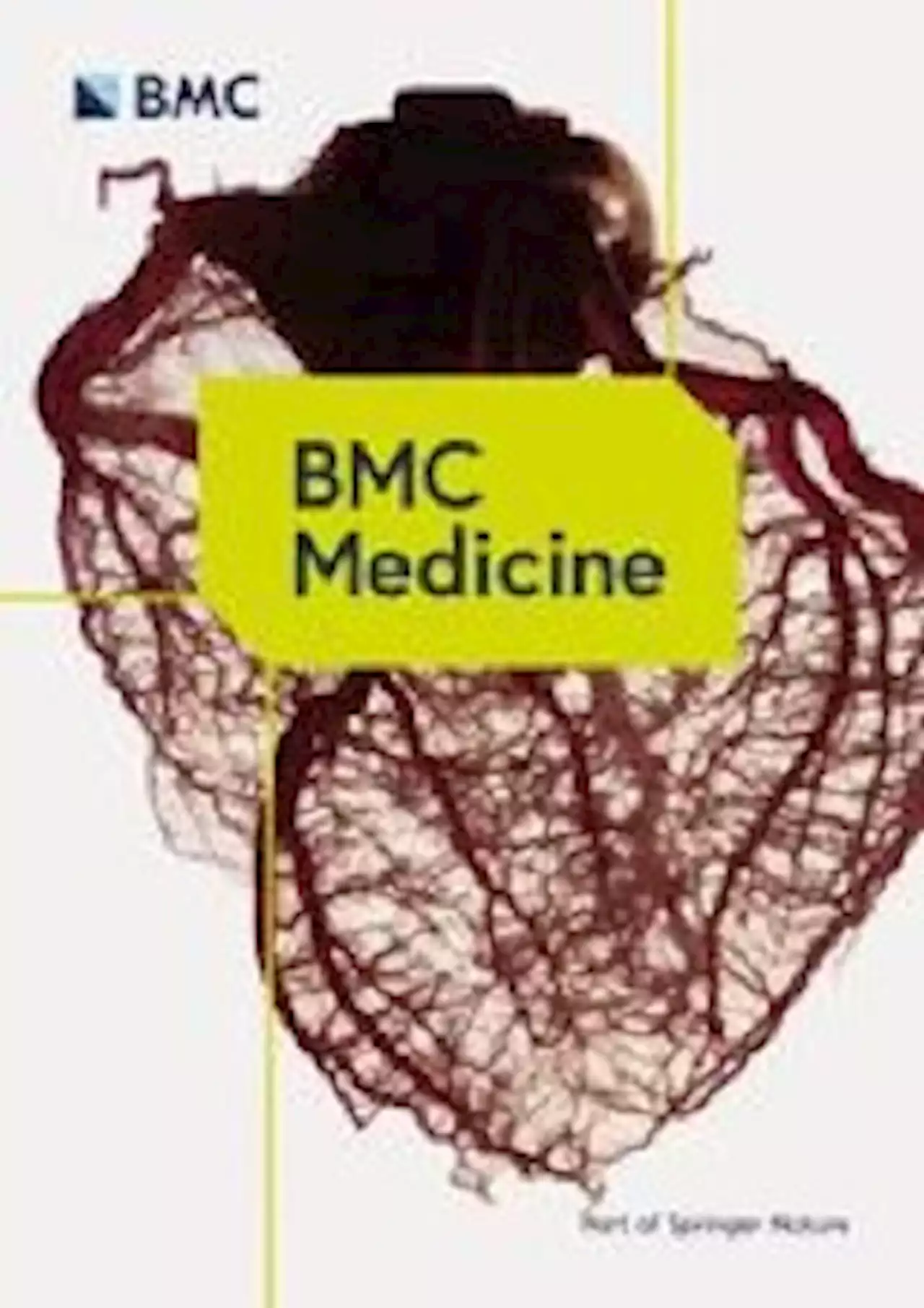Research published in BMCPublicHealth suggests that targeted postnatal interventions can help assist women to adopt and/or maintain healthy lifestyles following hypertensive disorders of pregnancy.
cohort overall, the interviewed sample had higher proportions with only one child, Caucasian ethnicity and born in Australia. Interviewees were comparable in maternal age, gestational age and educational attainment. Compared with the wider population of women giving birth in New South Wales, Australia during 2020, women in the BPstudy were slightly older but similar proportions were Australian-born and had multiple births. There were fewer Aboriginal or Torres Strait Islander women.
“I don't consider myself having high blood pressure. I was more than happy to partake in the research, but I don't feel like I have high blood pressure, so it hasn't really made a difference … I don't know if I actually read any of it [BPbrochures] just because, I know it sounds silly, but I don't know if I identify as being really unhealthy.
“I come from [ethnic group] background. So, I guess, just now preparing your own foods, or just making Mum aware – because she lives with us – just to minimize the salt that she puts in our food as well.”However, several mothers indicated that their focus on their children’s nutrition and well-being came at the expense of their own nutrition or physical activity. Some reported that they had little time or energy to focus on their own health.
Although some interviewees reported little change in their health behaviour, many recounted various improvements to their diet following HDP, such as increasing vegetable consumption, reducing intake of salt and sugar sweetened beverages, cutting out snacks and controlling portions. Many also described trying to keep physically active, especially through walking as a response to their current circumstances.
“I eat rather than just grabbing what's available. And I try to do a little bit more meal prep where I can now, which I haven't really done before, just so that I'm not just eating a party pie [small pre-cooked meat pie] because it takes five minutes.”Most participants in Group 3 spoke positively about the Get Healthy Service . They valued the convenience and flexibility of a phone-based health coaching service and the coaches’ willingness to fit in with parenting commitments.
Canada Latest News, Canada Headlines
Similar News:You can also read news stories similar to this one that we have collected from other news sources.
 Gut archaea associated with bacteria colonization and succession during piglet weaning transitions - BMC Veterinary ResearchBackground Host-associated gut microbial communities are key players in shaping the fitness and health of animals. However, most current studies have focused on the gut bacteria, neglecting important gut fungal and archaeal components of these communities. Here, we investigated the gut fungi and archaea community composition in Large White piglets using shotgun metagenomic sequencing, and systematically evaluated how community composition association with gut microbiome, functional capacity, and serum metabolites varied across three weaning periods. Results We found that Mucoromycota, Ascomycota and Basidiomycota were the most common fungi phyla and Euryarchaeota was the most common archaea phyla across individuals. We identified that Methanosarcina siciliae was the most significantly different archaea species among three weaning periods, while Parasitella parasitica, the only differential fungi species, was significantly and positively correlated with Methanosarcina siciliae enriched in day 28 group. The random forest analysis also identified Methanosarcina siciliae and Parasitella parasitica as weaning-biased archaea and fungi at the species level. Additionally, Methanosarcina siciliae was significantly correlated with P. copri and the shifts of functional capacities of the gut microbiome and several CAZymes in day 28 group. Furthermore, characteristic successional alterations in gut archaea, fungi, bacteria, and serum metabolites with each weaning step revealed a weaning transition coexpression network, e.g., Methanosarcina siciliae and P. copri were positively and significantly correlated with 15-HEPE, 8-O-Methyloblongine, and Troxilin B3. Conclusion Our findings provide a deep insight into the interactions among gut archaea, fungi, bacteria, and serum metabolites and will present a theoretical framework for understanding gut bacterial colonization and succession association with archaea during piglet weaning transitions.
Gut archaea associated with bacteria colonization and succession during piglet weaning transitions - BMC Veterinary ResearchBackground Host-associated gut microbial communities are key players in shaping the fitness and health of animals. However, most current studies have focused on the gut bacteria, neglecting important gut fungal and archaeal components of these communities. Here, we investigated the gut fungi and archaea community composition in Large White piglets using shotgun metagenomic sequencing, and systematically evaluated how community composition association with gut microbiome, functional capacity, and serum metabolites varied across three weaning periods. Results We found that Mucoromycota, Ascomycota and Basidiomycota were the most common fungi phyla and Euryarchaeota was the most common archaea phyla across individuals. We identified that Methanosarcina siciliae was the most significantly different archaea species among three weaning periods, while Parasitella parasitica, the only differential fungi species, was significantly and positively correlated with Methanosarcina siciliae enriched in day 28 group. The random forest analysis also identified Methanosarcina siciliae and Parasitella parasitica as weaning-biased archaea and fungi at the species level. Additionally, Methanosarcina siciliae was significantly correlated with P. copri and the shifts of functional capacities of the gut microbiome and several CAZymes in day 28 group. Furthermore, characteristic successional alterations in gut archaea, fungi, bacteria, and serum metabolites with each weaning step revealed a weaning transition coexpression network, e.g., Methanosarcina siciliae and P. copri were positively and significantly correlated with 15-HEPE, 8-O-Methyloblongine, and Troxilin B3. Conclusion Our findings provide a deep insight into the interactions among gut archaea, fungi, bacteria, and serum metabolites and will present a theoretical framework for understanding gut bacterial colonization and succession association with archaea during piglet weaning transitions.
Read more »
 Association of meat, vegetarian, pescatarian and fish-poultry diets with risk of 19 cancer sites and all cancer: findings from the UK Biobank prospective cohort study and meta-analysis - BMC MedicineBackground The associations of cancer with types of diets, including vegetarian, fish, and poultry-containing diets, remain unclear. The aim of this study was, therefore, to investigate the association of type of diet with all cancers and 19 site-specific incident cancers in a prospective cohort study and then in a meta-analysis of published prospective cohort studies. Methods A total of 409,110 participants from the UK Biobank study, recruited between 2006 and 2010, were included. The outcomes were incidence of all cancers combined and 19 cancer sites. Associations between the types of diets and cancer were investigated using Cox proportional hazards models. Previously published prospective cohort studies were identified from four databases, and a meta-analysis was conducted using random-effects models. Results The mean follow-up period was 10.6 years (IQR 10.0; 11.3). Compared with meat-eaters, vegetarians (hazard ratio (HR) 0.87 [95% CI: 0.79 to 0.96]) and pescatarians (HR 0.93 [95% CI: 0.87 to 1.00]) had lower overall cancer risk. Vegetarians also had a lower risk of colorectal and prostate cancers compared with meat-eaters. In the meta-analysis, vegetarians (Risk Ratio (RR): 0.90 [0.86 to 0.94]) and pescatarians (RR 0.91 [0.86; 0.96]) had lower risk of overall and colorectal cancer. No associations between the types of diets and prostate, breast, or lung cancers were found. Conclusions Compared with meat-eaters, vegetarians and pescatarians had a lower risk of overall, colorectal, and prostate cancer. When results were pooled in a meta-analysis, the associations with overall and colorectal cancer persisted, but the results relating to other specific cancer sites were inconclusive.
Association of meat, vegetarian, pescatarian and fish-poultry diets with risk of 19 cancer sites and all cancer: findings from the UK Biobank prospective cohort study and meta-analysis - BMC MedicineBackground The associations of cancer with types of diets, including vegetarian, fish, and poultry-containing diets, remain unclear. The aim of this study was, therefore, to investigate the association of type of diet with all cancers and 19 site-specific incident cancers in a prospective cohort study and then in a meta-analysis of published prospective cohort studies. Methods A total of 409,110 participants from the UK Biobank study, recruited between 2006 and 2010, were included. The outcomes were incidence of all cancers combined and 19 cancer sites. Associations between the types of diets and cancer were investigated using Cox proportional hazards models. Previously published prospective cohort studies were identified from four databases, and a meta-analysis was conducted using random-effects models. Results The mean follow-up period was 10.6 years (IQR 10.0; 11.3). Compared with meat-eaters, vegetarians (hazard ratio (HR) 0.87 [95% CI: 0.79 to 0.96]) and pescatarians (HR 0.93 [95% CI: 0.87 to 1.00]) had lower overall cancer risk. Vegetarians also had a lower risk of colorectal and prostate cancers compared with meat-eaters. In the meta-analysis, vegetarians (Risk Ratio (RR): 0.90 [0.86 to 0.94]) and pescatarians (RR 0.91 [0.86; 0.96]) had lower risk of overall and colorectal cancer. No associations between the types of diets and prostate, breast, or lung cancers were found. Conclusions Compared with meat-eaters, vegetarians and pescatarians had a lower risk of overall, colorectal, and prostate cancer. When results were pooled in a meta-analysis, the associations with overall and colorectal cancer persisted, but the results relating to other specific cancer sites were inconclusive.
Read more »
 How the COVID-19 pandemic affected mental health and wellbeing, key determinants of health, and health inequitiesHow the COVID-19 pandemic affected mental health and wellbeing, key determinants of health, and health inequities medrxivpreprint UMontreal USherbrooke UQAR mentalhealth wellbeing COVID19 coronavirus covid pandemic
How the COVID-19 pandemic affected mental health and wellbeing, key determinants of health, and health inequitiesHow the COVID-19 pandemic affected mental health and wellbeing, key determinants of health, and health inequities medrxivpreprint UMontreal USherbrooke UQAR mentalhealth wellbeing COVID19 coronavirus covid pandemic
Read more »
 Knowing your roots can improve your mental healthNew study finds link between knowledge of ancestors and well-being, and that 21% of black Brits said not knowing impacts their mental health
Knowing your roots can improve your mental healthNew study finds link between knowledge of ancestors and well-being, and that 21% of black Brits said not knowing impacts their mental health
Read more »
 Single-cell RNA-sequencing analysis of the developing mouse inner ear identifies molecular logic of auditory neuron diversification - Nature CommunicationsThis study chronicles dynamic gene expression in differentiating spiral ganglion neurons from murine embryonic day 14.5 to postnatal stage, establishes their lineage trajectories, and identifies molecular determinants of cell fate decision.
Single-cell RNA-sequencing analysis of the developing mouse inner ear identifies molecular logic of auditory neuron diversification - Nature CommunicationsThis study chronicles dynamic gene expression in differentiating spiral ganglion neurons from murine embryonic day 14.5 to postnatal stage, establishes their lineage trajectories, and identifies molecular determinants of cell fate decision.
Read more »
 Study provides first evidence of link between opioid use disorder, chronic painScientists have long noted a connection between opioid use disorder (OUD) and chronic pain, however brain mechanisms linking OUD and chronic pain are poorly understood. This first-of-its-kind study by researchers at The Ohio State University Wexner Medical Center and College of Medicine and University of Michigan Medical School explored one potential mechanism—central sensitization—among individuals with OUD.
Study provides first evidence of link between opioid use disorder, chronic painScientists have long noted a connection between opioid use disorder (OUD) and chronic pain, however brain mechanisms linking OUD and chronic pain are poorly understood. This first-of-its-kind study by researchers at The Ohio State University Wexner Medical Center and College of Medicine and University of Michigan Medical School explored one potential mechanism—central sensitization—among individuals with OUD.
Read more »
